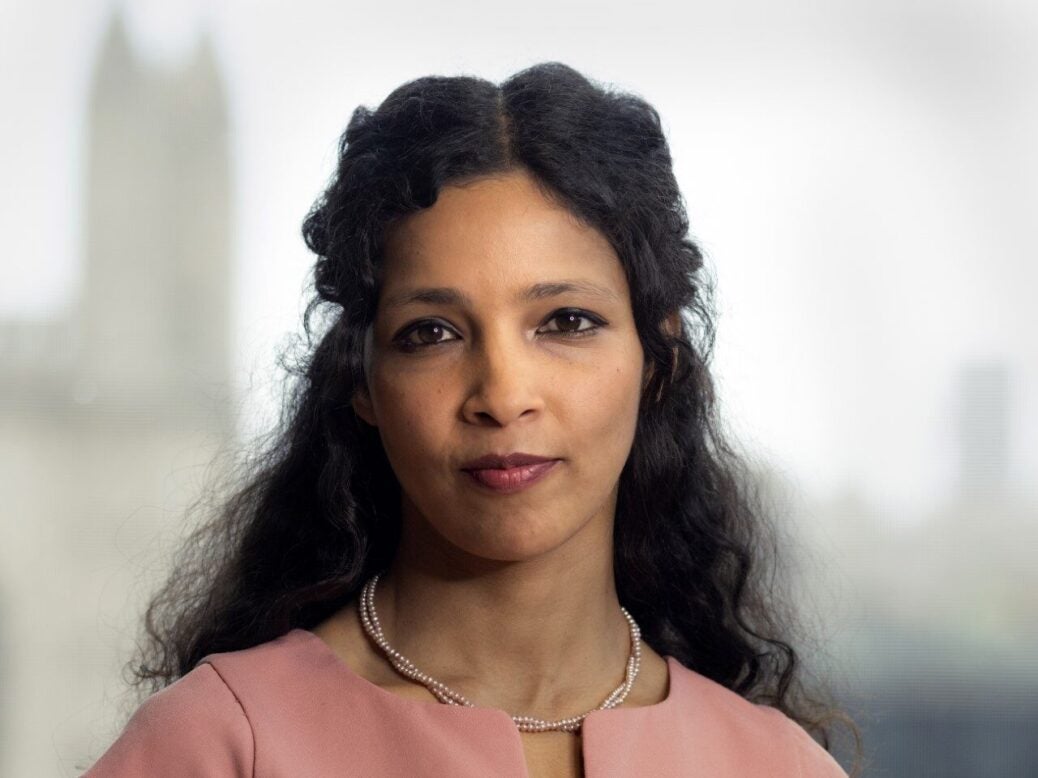
Bloomberg’s new London bureau chief believes the mammoth news organisation has the resources “to be the best” and make a splash with every headline and piece of analysis.
Ruth David (pictured) has been promoted from Bloomberg’s deputy bureau chief for London to take the top job following the departure of Neil Callanan, who has moved to be the company’s corporate finance czar.
In her new role, which she started last week, David oversees some 500 journalists in many different niches based in the City of London – making Bloomberg one of the biggest newsrooms in the UK.
David told Press Gazette her challenge would be “getting everyone to work together. We’re a very big organisation – how do you work together seamlessly?”
Referring to the editors of teams covering, for example, companies, tech, eco-stuff or markets, she said: “Because there are so many cooks in the kitchen. We have a lot of really smart, really talented people. And so how do we ensure that from the first headline – where we want to be first, of course – to the very last analysis of note, we are the organisation that’s at the forefront.
“And that’s a challenge that is facing, I would say, every journalistic organisation. But when we say that we want to be the best at it, we have the resources for it.”
Bloomberg announced a multi-million pound London expansion in May, and although the news organisation already had the role of bureau chief for the city, David said she would be “looking into all of the initiatives that we’re doing as well”.
David, who can use knowledge gained from almost 13 years at Bloomberg, ten of which she has spent in London, will oversee Bloomberg journalism being produced for the international market and its UK-focused effort across the entire bureau.
Her role will also involve “being an ambassador for the newsroom, and being involved in our interns recruitment and training and seeing that the content that we want our users to have is something that they are getting”.
[Read more: Bloomberg Media CEO on why ‘being in the middle’ politically is good for business]
The priorities of the role will change slightly now the worst of the Covid-19 pandemic is over, however. David said her predecessor Callanan was “the pandemic bureau chief” who “led the bureau admirably through a pandemic”.
“But a lot of that involved checking in on our staff and ensuring that they were doing okay while working remotely, and [determining] how do you have all of those systems and processes in place to enable the majority of work being remote,” she added.
“Whereas for me the focus will be on how do we showcase our newsroom both internally and externally. So: how do we get the big names in business and politics and finance to come in and engage more with us and have agenda setting coverage?
“We had the equality summit in the Bloomberg venue a few weeks back, and we had a lot of corporate CEOs come in and for instance, we did this interview with [John Lewis Partnership chairman] Sharon White, which a lot of the newspapers picked up on…”
David revealed what she used to tell companies about Bloomberg’s reach when she was a mergers and acquisitions reporter: “One of the things that we would tell global companies, especially if they are an American company buying a UK business, or a French company merging with a UK company – Bloomberg will have not just the reach here, but the reach in other big markets as well.
“And so if you want to speak to those kinds of people, if you want to speak to investors, if you want to speak to people in the market – and even to an extent, when you’re talking about governments – the reach of our organisation should never really be looked at as just within the UK, but also outside of the UK.”
Email pged@pressgazette.co.uk to point out mistakes, provide story tips or send in a letter for publication on our "Letters Page" blog
